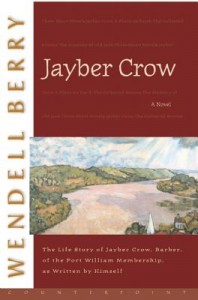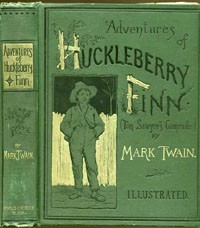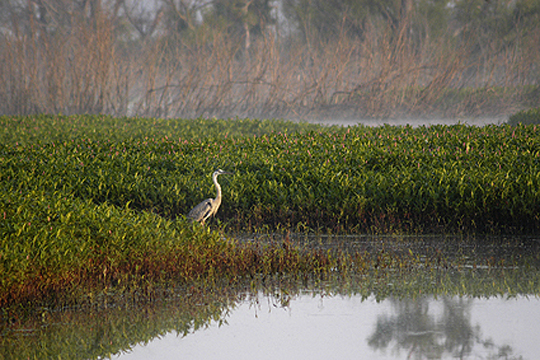Jayber Crow
 I read Jayber Crow when it first came out, and I didn’t like it as much as I expected to. Over the last week I’ve reread it, and I liked it better this time around. Purportedly the life story of the barber in Berry’s fictional community of Port William, I enjoyed the reflectiveness, the way Berry’s narrative slows me down and won’t permit skimming, the beauty of the nature writing, and the expertly-drawn passage of time from an earlier America to the angst of the modern age. Jayber’s life spans some key transitions from local to global, from peace to habitual national war, from small, diversified agriculture to agribusiness, from community to… what? What do we call what we have now?
I read Jayber Crow when it first came out, and I didn’t like it as much as I expected to. Over the last week I’ve reread it, and I liked it better this time around. Purportedly the life story of the barber in Berry’s fictional community of Port William, I enjoyed the reflectiveness, the way Berry’s narrative slows me down and won’t permit skimming, the beauty of the nature writing, and the expertly-drawn passage of time from an earlier America to the angst of the modern age. Jayber’s life spans some key transitions from local to global, from peace to habitual national war, from small, diversified agriculture to agribusiness, from community to… what? What do we call what we have now?
I still found myself struggling with the book, though the struggles make me realize how thoroughly I can enjoy a book even if it frustrates me. Like with Hannah Coulter, the first-person narrative of Jayber Crow doesn’t really convince me that it’s Jayber talking. It’s Berry talking. The beautiful language and fine discernments, the habit of making poetry while chopping wood, the bits of life history lifted directly from Berry’s own, the uneasy relationship with officialized Christianity (or officialized anything, for that matter) all seem more like thinly-veiled Wendell Berry than a distinctive character. I guess it supports my understanding of Berry as an autobiographer, more than anything else. I like all of these qualities, and I think I’m typical of his devoted readers in the way I tend to view my liking for the books as a liking for the man. People who like this author seem to feel a personal connection to him, and to enjoy the return to the familiar ground of certain themes and places and characters. So the fact that I think the first person narrative fails doesn’t mean that I dislike the book, or Jayber. It just means that I wish Berry would stick to the third person narrative, and let his characters have the freedom to become whoever they are.
A Place On Earth, Berry’s second novel but his first expansive, delighted populating of Port William, is similar to Jayber Crow in the way it depicts the life of a whole community. But the point of view is third-person, and it works better. We have all the pleasures and benefits of Berry’s perspective shaping and coloring the story, but it leaves the characters to just be themselves. I can think of a few others — Nathan Coulter, and A World Lost — that are in the first person, and that seem to work. Perhaps it’s because they are more limited in scope.
I enjoyed the first half of the novel more than the second, maybe because it seemed to get more heavy-handed as it went on. One of its main concerns is tracing the fall of agriculture through the second world war, the war in Vietnam, and the disastrous term of Earl Butz as secretary of agriculture in the 1970’s. It was in response to Butz’s relentless pushing of farmers to “get big or get out” that Berry wrote The Unsettling of America, his agricultural manifesto. I’m in agreement with Berry’s interpretation of our agricultural evolution as “ruinous.” But after awhile the novel felt less like Jayber’s life story than a morality tale about agribusiness in the person of Troy Chatham, the novel’s antagonist.
Berry prefaces this novel with a Mark Twainesque warning against subjecting it to literary analysis. (See his “Notice” in the book’s opening pages.) But some of it makes no sense without reading it as symbolic. I’m thinking of the love triangle: Mattie Keith, child of an old-school farmer with a rich inheritance of knowledge about the best way to make a farm thrive; Troy Chatham, her husband and a one-dimensional agribusinesss fanatic who rapes and plunders the land, cheats on his wife, plunges deeply into debt, and alienates everyone; and Jayber Crow, ostensibly a barber, but also something of a priest and prophet who loves Mattie and is redeemed by being faithful to her from afar. It’s hard not to see Mattie as representative of the earth, Troy as the destructive new order (or disorder), and Jayber as the faithful figure who ultimately cannot prevent the destruction wrought against the earth by the likes of Troy Chatham. He resembles Christ in some ways, but he also resembles the ideal husbandman — even though he’s not a farmer in vocation. Berry, like Liberty Hyde Bailey before him, sees the farmer as the one who deals in mysteries in his interchange with what Bailey called “the holy earth.” There is something of this quasi-religious attitude toward the earth, and toward Mattie, about Jayber.
I have a hard time making sense of all this without seeing it as symbolic. I understand the power of attraction, and I understand that even married people can struggle with it. But faithfulness to your spouse means that you “forsake all others” — that you fight and overcome attractions to anyone else. I understand that Jayber isn’t married, and he never tells Mattie of his vow to be her “husband in spirit.” But she is still another man’s wife, and pledging secret marriage to her in his heart isn’t something I can exactly admire or feel comfortable with. The fact that we’re supposed to see it as admirable suggests that it’s important for its symbolism more than as typical human behavior.
This is already long, but there is another layer of the novel to think about: Jayber’s long spiritual quest, and the accompanying wealth of biblical stories and imagery. His name is Jonah, for starters, and he is running away from what he initially understands as his call to be a preacher. He hides for years before returning to Port William through a flood and telling people who he is. Like Jonah, he is a prophet with a message for the modern world, and he lies awake at night thinking of all the evil being done. Like Jonah, he has to learn to love and forgive, and it takes him a long time. When he finally is able to overcome his dislike for Troy, he goes to sleep in the belly not of a whale, but of a forest being felled of trees that look to him like beached whales, explaining, “I wanted to get as low as I could, as I thought I would want to do had I been at the top of a windblown tree or in a little boat in a storm.”
The Old Testament prophets all foreshadow Jesus in some way, and Jayber too becomes gradually more Christlike and self-sacrificing. We get the sense that his spiritual struggles are never really a matter of getting across the gap from unbelief to belief; they’re more a matter of dropping resistance to a deeply held and cherished belief in a God whose ways he doesn’t always understand. The beauty and mystery of the earth He has made, and the love with which He sustains it and suffers its mistreatment in the hands of people whom He’s left free, have won Jayber’s heart. His is a journey into love for others, despite their faults and abuses — much like his biblical namesake.
There is so much more to mull in Jayber’s journey through this “vale of soul-making” (to quote Keats, not Berry). But I won’t mull any further here. What I’m left with is a novel that made me struggle and think and that left me a little baffled in spots. But that only sends me back into thought, because it shows me how moved I can be by an imperfect work of art — how challenged, how grieved, how delighted, and how deeply satisfied I can be after reading it. Jayber says more than once that his tale is about Heaven, and he could have gone on for a good many more pages without my minding. In another ten years I’ll probably read it again.



3 Comments
Jess
I always enjoy your book reviews. This was especially interesting as I devoured Jayber Crow this year and fell in love with it. You have good insight that I had not considered before.
hopeinbrazil
Thank you for your thoughtfully written review. I have this book, but haven’t had a chance to read it yet. As you said, Berry’s style is not conducive to skimming and I can’t seem to find a quiet week in which to let myself soak in his gorgeous prose. Maybe this summer!
Janet
I hope I haven’t ruined it for you with all these plot spoilers!